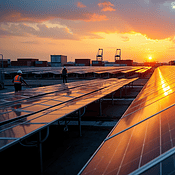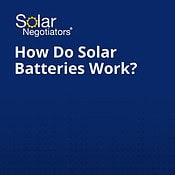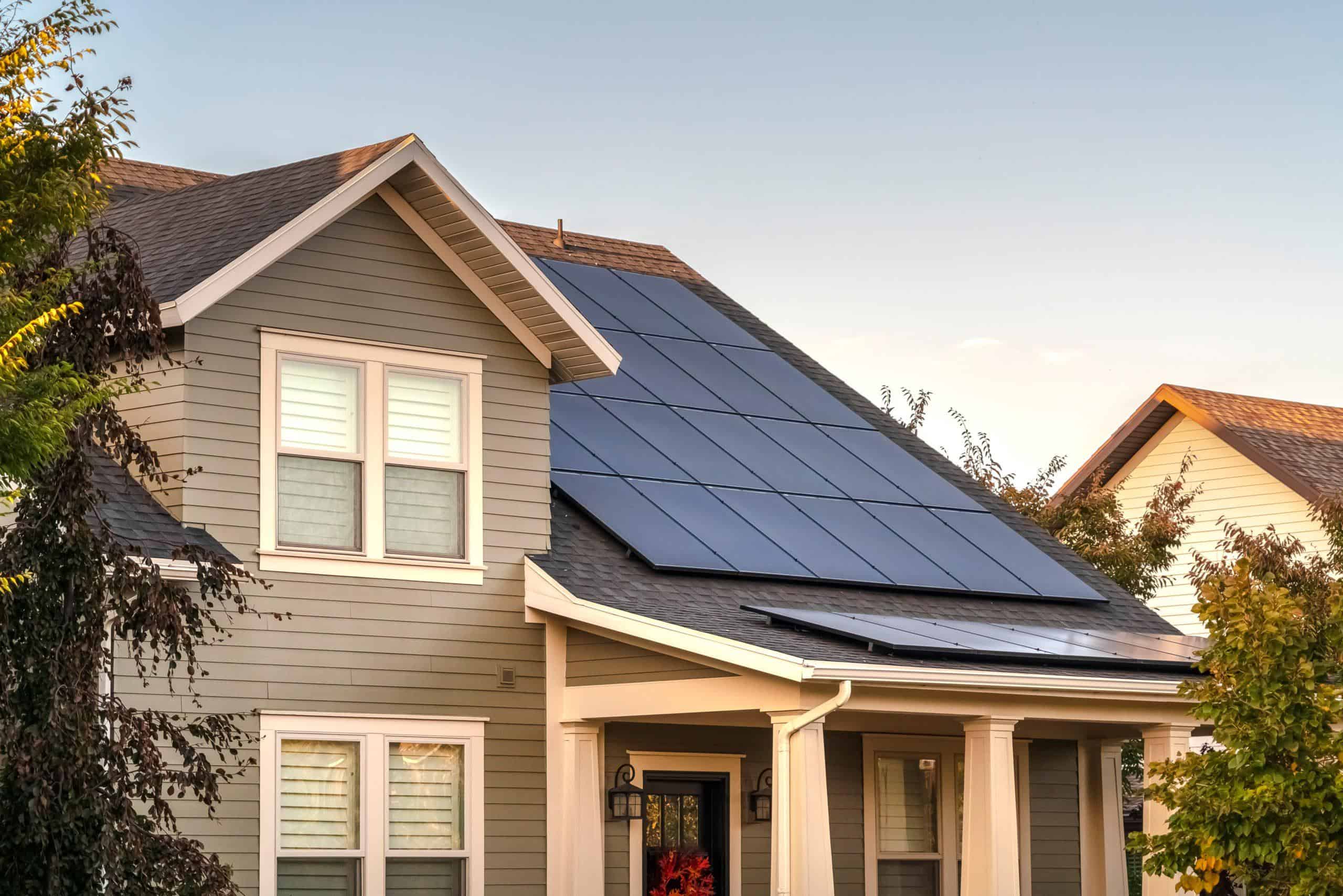
PV Array: What You Need To Know
What does PV stand for? What is an array? PV is the abbreviation for photovoltaic—the process of converting light into electricity using semiconducting materials. An array is simply the grouping of objects or things. Solar panels or PV modules are made up of a series of interconnecting PV cells. A photovoltaic array, on the other hand, is a connected system of multiple solar panels or PV modules. PV arrays can contain as little as one panel or module per system, and can also be extremely flexible in terms of placement and budget.
Did you know? Solar Negotiators offers a FREE solar quote!
How Does a PV Array Power My House?
Solar panels take in light from the Sun and convert it into direct current (DC) electricity. However, standard homes take alternating current (AC) electricity. The solution for this is to add an inverter. Inverters convert direct current (DC) electricity to alternating current (AC) electricity to power your home. Like solar panels, inverters come in many shapes and sizes, so we recommend doing the research and talking with your installer during the consultation process to find the best option for your system.
Where Should I Install My Solar PV Panels?
Depending on your location, an installer will give you the optimal location where you should install your array for maximum energy production. For residential customers, solar arrays are typically installed on the roof of your home but can sometimes be installed in the ground. Each approach has its benefits and disadvantages in terms of aesthetics, positioning, cleaning, and maintenance. Rooftop solar arrays usually are more hidden depending on if your home is north or southward facing and take up less usable space on your property.
Some additional factors to consider when installing on your roof are: shading, material, and age of your roof. With grounded solar arrays, they can have optimal positioning for light, easier cleaning, and more accessibility for maintenance but take up more usable space. A growing option for many homeowners are solar carports. Solar carports give you the option of having a large system with the flexibility of optimizing your space.
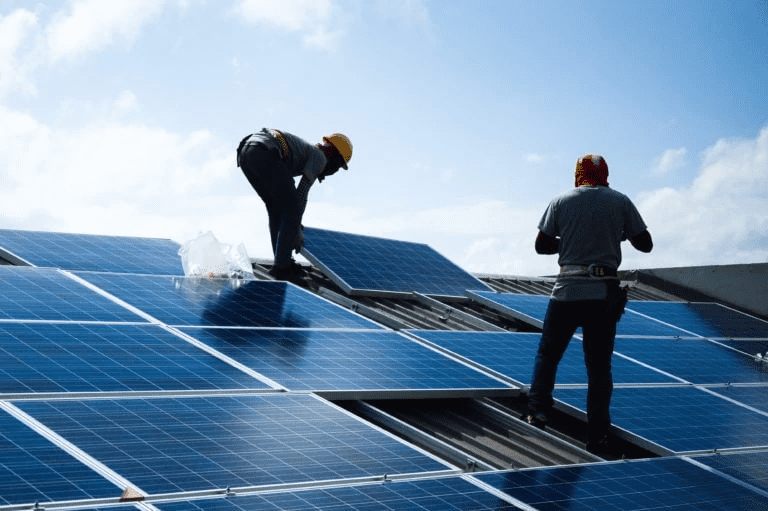
Does the Orientation of a PV Array Matter?
Yes, the orientation of your solar array system can play a huge role in your energy production. In the northern hemisphere, it is common for installers to position your solar panels on the south facing section of your roof. Why? This is standard practice because this is where your PV array will intake the most sunlight. The more sunlight that goes into your system, the more credits you can build during the Spring and Fall months to offset your energy bill in the Summer and Winter!
Having an East or West facing orientation is not the end of the world. You just might need to buy additional solar panels or invest in more energy efficient panels. According to Solar Reviews, “SunPower manufactures the most efficient residential panel on the market, the Series A, which boasts a whopping 22.5% efficiency rating.” Another factor to take into consideration is the tilt of your roof. Although the tilt of your roof has less of an effect when compared to the orientation of your PV array, pitch angles between 30 and 45 degrees will get the job done.
How Many Panels Do You Need In Your PV Array?
Determining how many solar panels you need is based on several factors. The primary indicator of how many panels you need will depend on your energy consumption. Ideally, you want to cover 100% of your energy needs through your solar system to maximize savings. Geographical location, solar array positioning, and the type of solar panels you use, all play a role in how many panels you would need. The best way to determine how many solar panels you need is to contact a solar pv professional. Solar Negotiators’ expert staff streamlines the process by conducting an in-depth analysis of your home.
Did you know? A typical American home will need between 21 and 34 solar panels to cover their electric bill.

Can You Install More Than One Solar Array?
Yes. Installing multiple solar arrays can maximize your energy savings. However, it is important to consider how much available space you have on your roof. Although most solar homes have one to three solar PV arrays, not every home will be able to support multiple arrays. You might be thinking, “What if I don’t have enough roof space?” Don’t worry! Oftentimes, utilizing energy efficient solar panels can make up for the number of less efficient panels.
Another option to consider would be a ground mounted system. A ground mounted pv system may provide better efficiency and overall power for your home. The only negative factors to installing a larger system with multiple arrays are the price of equipment, installation labor, and maintenance costs of the system.
Can You Add On To Your Solar Array Down The Line?
Yes. However, it is important to consider which company you decide to install your primary solar array. Some companies might be hesitant to install an additional solar array due to warranty issues with the first PV array. Be sure to do your research and ask any salesperson regarding the options of adding additional solar arrays down the line.
Do PV Arrays Need Maintenance And Cleaning?
Yes. Everything mechanical eventually needs cleaning and maintenance. Sure, you can clean your solar panels with a brush and water pressure machine. However, Solar Negotiators has a service division of highly trained technicians that utilize advanced cleaning techniques to remove dirt and debris. In addition, we include lifetime human monitoring and maintenance with every installation.
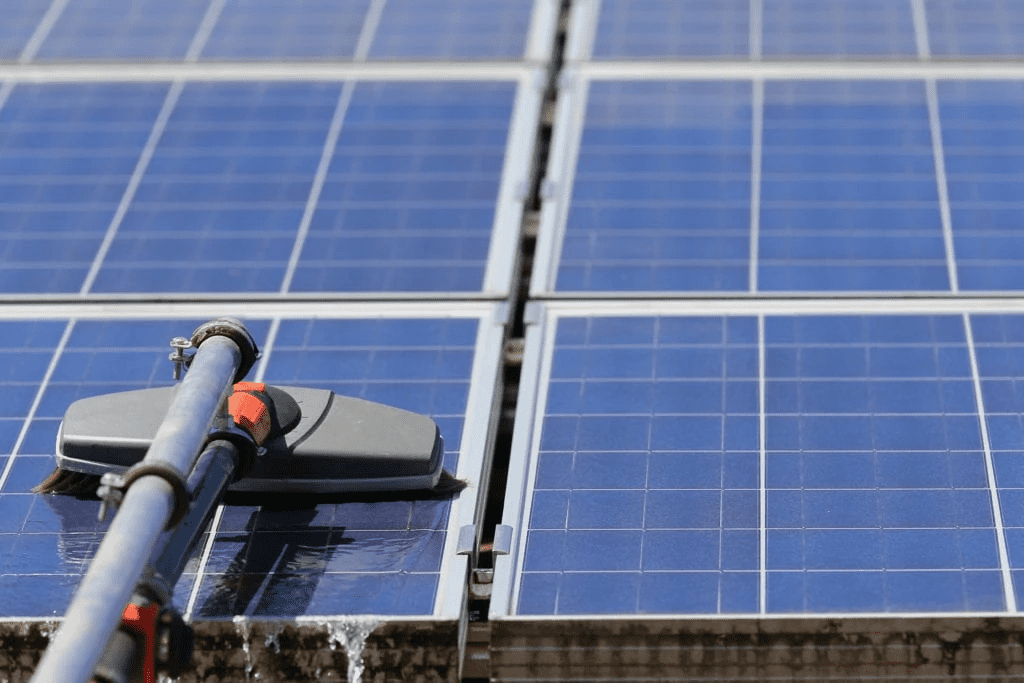
Did you know? Solar Negotiators has 5,000 installation clients and nearly 10,000 maintenance & service clients.
Looking For A Solar Array Installation?
Look no further. Solar Negotiators streamlines the process. We offer free, no-obligation quotes for solar installation. Get started today!

Recent Posts
Latest Solar Tax Credit News: Bill Signed To Eliminate 30% Solar Tax Credit
Solar Tariffs – Are They Here To Stay?
Solar Backup Solutions: How Do Solar Batteries Work?
Reduce your reliance on the energy grid.
Get Solar In
Your Inbox

Refer friends and get paid in-app
The more referrals you bring in, the higher your earnings.
Earn $1,000 for each referral, and bonuses of up to $1,500 once you hit your 10th referral.

